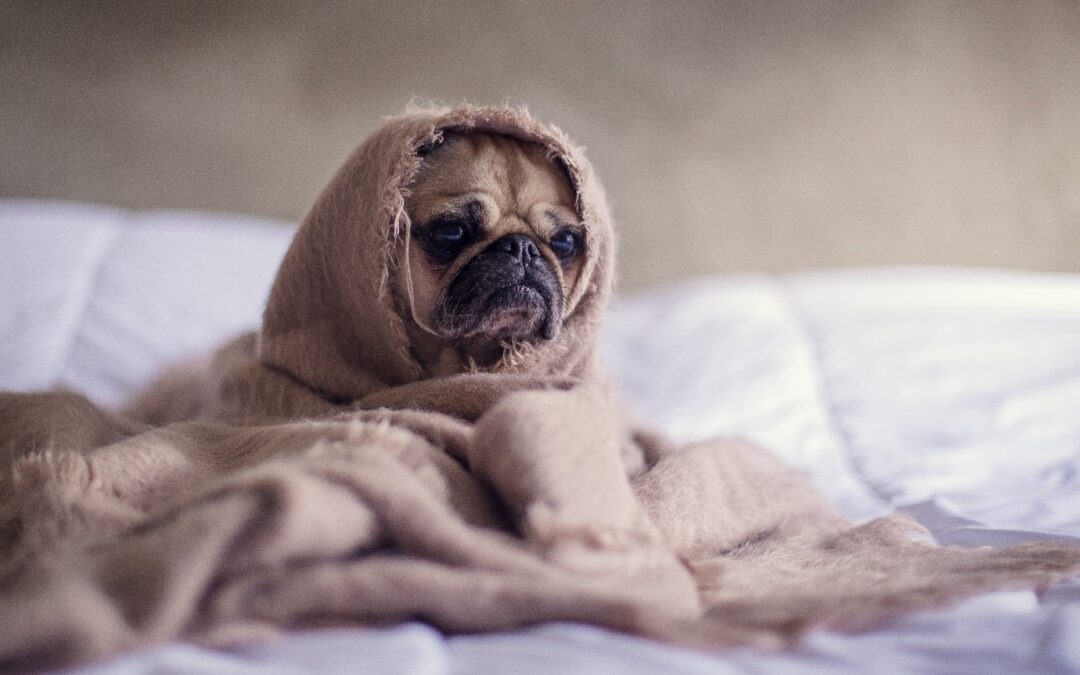No products in the cart.
Blog
Why Does My Dog Pant At Night?
Dogs pant at night for various reasons, and most of the time, it’s a normal behavior. However, it could sometimes indicate an underlying issue. Here are some common reasons why your dog might pant at night:

1. Temperature Regulation
- Heat Management: Dogs can’t sweat like humans, so panting is their primary way to cool down. If your dog is panting at night, it might be because they are too warm. Even if the room feels comfortable to you, dogs may overheat, especially if they have a thick coat or if the room lacks good ventilation.
- Blankets or Warm Bedding: Heavy blankets or bedding could also cause your dog to overheat, leading to panting.
2. Anxiety or Stress
- Separation Anxiety: Some dogs experience anxiety when left alone at night. If your dog is prone to separation anxiety, they may pant due to stress when they can’t be near you while you sleep.
- Nighttime Fears: Loud noises (like thunderstorms, wind, or unfamiliar sounds) could cause anxiety and lead to panting.
3. Pain or Discomfort
- Arthritis or Injuries: If your dog has joint problems or other physical discomforts, they may be restless and panting at night as a sign of pain.
- Bloat or Stomach Issues: If your dog is experiencing gastrointestinal discomfort, they may pant as a sign of distress.
4. Age-Related Changes
- Cognitive Dysfunction: Older dogs can develop canine cognitive dysfunction (similar to dementia in humans), which may cause them to become disoriented or anxious at night, leading to panting.
- Weaker Internal Regulation: Older dogs may also lose the ability to regulate their body temperature effectively, leading to nighttime panting.
5. Medical Issues
- Respiratory Problems: Conditions like laryngeal paralysis, heart disease, or lung issues could cause your dog to have trouble breathing, especially when lying down, which leads to panting.
- Heart Problems: Heart conditions can cause fluid buildup in the lungs, leading to panting as the body struggles to get enough oxygen.
- Cushing’s Disease: This condition causes an overproduction of cortisol and can make dogs pant excessively, especially at night.
6. Excitement or Anticipation
- Anticipating Activities: Some dogs may pant out of excitement or anticipation if they associate night with a particular event, like an upcoming walk or meal.
7. Medications
- Side Effects: If your dog is on medication, some drugs can cause increased panting, especially steroids like prednisone.
When to Be Concerned:
- Panting is Continuous: If the panting persists throughout the night and is excessive, it could be a sign of a more serious health issue.
- Other Symptoms Appear: If the panting is accompanied by lethargy, coughing, vomiting, or changes in appetite, it may warrant a vet visit.
- Sudden Changes in Behavior: If your dog suddenly starts panting at night without any clear reason, a health check-up might be necessary.
If you’re unsure or concerned, it’s always a good idea to consult a veterinarian to rule out any medical conditions.
